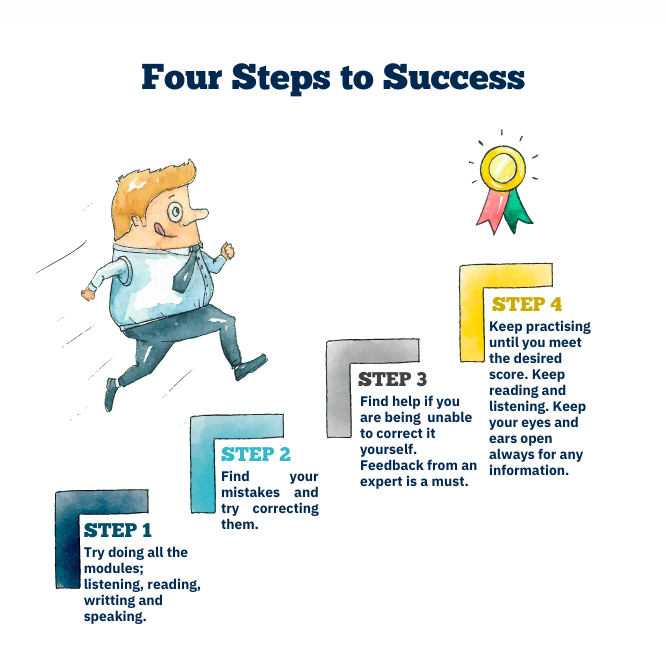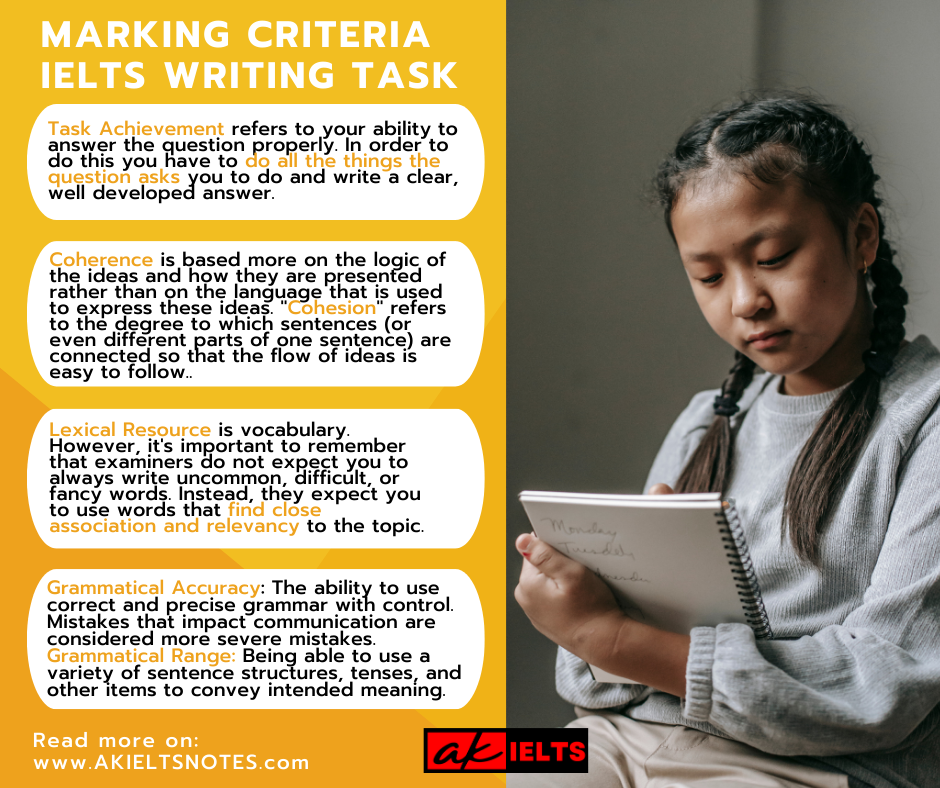Back
IELTS Writing
Home
What is Ielts Writing?
IELTS WRITING; ACADEMIC AND GENERAL
For many students preparing for their IELTS exam, the IELTS writing test might be a frightening undertaking. The writing test, whether you are doing the academic or general module, asks you to demonstrate your ability to write in English in response to a specific prompt. But, with the proper preparation, tactics, and ideas, you may enhance your writing abilities and score well in this part. We will give you with a full reference to the IELTS writing exam in this post, which will include an overview of the test style, differences between academic and general writing, preparation tactics, success suggestions, typical mistakes to avoid, and sample writing problems with model responses. By the conclusion of this article, you will have acquired information on IELTS writing test to top your test.


UNDERSTANDING THE IELTS WRITING TEST
OVERVIEW OF THE IELTS WRITING TEST
The writing task tests your capability to effectively communicate in English through writing. This module consists of two types of tasks, 1 lasting 20 minutes and 2 lasting 40 minutes. Task 1 demands you to write a 150 words essay, report or a letter on a given topic. Task 2, on the other hand requires you to write 250 words opinion or a discussion essay.
SCORING CRITERIA FOR IELTS WRITING TEST
IELTS test is graded on a scale of 0-9. Writing task is evaluated on the basis of Task Response/ Task Achievement, Lexical Resource, Grammatical Range and Accuracy and Coherence and Cohesion. A person who secures band score between 0-5 is considered non-competent user, who scores between 5.5 and 6.5 is an average user, and 7+ scorer is a competent user. The score of each band score is divided by 4 and the average score is the overall band score.
DIFFERENCES BETWEEN ACADEMIC AND GENERAL WRITING MODULES
PURPOSE AND DIFFERENCE BETWEEN ACADEMIC AND GENERAL WRITING MODULES
IELTS Writing task consists of two segments: Academic and General Training. Academic Writing Task is designed to test student’s competence needed to pursue higher education. It tests ability to summarize and compare illustrations such as Maps, Graphs, Charts, Table, and Process diagram. However, the task 2 for both, General and Academic tests students and workers on analytical and critical thinking and expression capabilities. Task 1 of General Training tests the ability to write formal and informal letter applicable in the general setting like market, or work. Task 2 of Academic Training, on the other hand, wants to see the capability if the student can produce academic writing while in college or university.
EXAMINING THE MARKING CRITERIA FOR ACADEMIC AND GENERAL WRITING
While both the Academic and General Training Writing examinations are evaluated on the same scale, they are graded differently. Academic Writing module essays are graded based on your ability to assess and analyze complicated information, as well as your ability to write in an academic manner. Essays prepared for the General Training module, on the other hand, are graded primarily on your ability to communicate clearly and effectively, as well as your use of suitable tone and style.


HOW TO PREPARE FOR THE IELTS WRITING TEST
UNDERSTANDING THE FORMAT AND TIME CONSTRAINTS
Comprehending the format of each question type and objective of the question is vital. In addition, knowing about the time allocation is also important. It is better you practice on each common topic, each question types in timed condition.
DEVELOPING WRITING SKILLS AND TECHNIQUES
Writing skills development is a useful skill to hone. There are 6 different types of question in academic writing: map, process, line, bar, pie, table and mixed chart. Also, 2 types in general writing task 1: formal and informal letters. Moreover, there are 5 types of question types in task 2: agree/disagree, advantage/disadvantage, advantage/disadvantage (outweigh), problem/cause/solution, discuss both views and direct/two part question. You should learn to use appropriate vocabulary, generate grammatically error free sentences, paragraphing, paraphrasing, use of collocation and transitional words and phrases to connect your ideas.
PRACTICING WITH SAMPLE WRITING TASKS
It is better to familiarize with question types and topics before taking the test. In order to do so, you can always look at sample answers on internet or visit Bees International Education Services-AK ILETS for guided journey. Read plenty of sample answers and note down the vocabularies and transition words and phrases. Everybody has their own strategy of writing essays and describing charts so develop your own style of writing. However, you must have a plan before writing. Learning to understand and stay in the topic will prove to be a useful skill.
TIPS FOR ACHIEVING A HIGH SCORE IN IELTS WRITING
UNDERSTANDING THE QUESTION AND RESPONDING APPROPRIATELY
Achieving high score must be always the priority. To do so, it is essential to understand the question’s minor and major keywords. For that you should learn to analyze the question carefully. If you do not understand the question there is always a risk of going off-topic.
ORGANIZING AND STRUCTURING YOUR WRITING
To clearly present your idea, your essay or the report must be organized. It should be structured well in paragraphs and must follow a logical sequence. A paragraph should have topic sentence, additional information on topic sentence, an example and a concluding sentence. The task 2 essay must have introduction, body paragraphs, and a conclusion; task 1 must not have a conclusion.
USING APPROPRIATE VOCABULARY AND GRAMMAR
A good writer does not write long sentences to express ideas, but uses appropriate vocabulary to make sentences precise yet meaningful. It does not mean that you should make very difficult sentences but it means you should not beat around the bush. You should use different types of sentence structure so that your essay does not sound monotonous. It should be dynamic and error free. You should focus on writing your sentences that sounds critical and analytical and do not make it sound artificial and robotic.
COMMON MISTAKES TO AVOID IN IELTS WRITING
NOT UNDERSTANDING THE QUESTION OR TASK
One of the biggest mistakes candidates make is not seeking to understand the question or task before writing. It's crucial to read and analyze the prompt carefully to ensure that you answer the question correctly. If you fail to address the question, you risk losing marks.
WRITING IRRELEVANT OR OFF-TOPIC RESPONSES
Another common mistake is writing whatever comes to the mind at the time which is likely to influence you to produce irrelevant or off-topic responses. It is crucial to plan your answer before you start writing the answer and sticking to it.
NOT CHECKING YOUR WRITING FOR ERRORS AND MISTAKES
The time is limited and you should practice to write within the allocated time and also save some time to check your answer. While in your flow, you will not notice the mistakes you are making, but checking afterwards can help you rectify some of the mistakes. This will contribute hugely to your band score. Check your punctuation, grammar, transition words and phrases, collocations.
SAMPLE WRITING TASKS AND MODEL ANSWERS
Ignoring the importance of reading and studying sample answers is another common mistakes. Human brain learns from hearing, listening, seeing and reading. Unless we put an input we cannot generate output. Therefore, learning from sample is crucial; it will give you an idea to structure your essay and appropriate language and vocabulary.
ENHANCING YOUR VOCABULARY AND GRAMMAR FOR IELTS WRITING
USING CONTEXTUAL CLUES TO IMPROVE VOCABULARY
Words in any language function in relation to context. Without a context, a word may mean a different thing while in context it may mean something else. Reading, understanding and memorizing vocabulary in context will help you retain the words. It is better to record and try to find the meaning of the word immediately using your offline dictionary and later using it in the sentences.
COMMON GRAMMAR MISTAKES AND HOW TO AVOID THEM
Most of the students confuse themselves in subject-verb-agreement and tense; it can hinder your communication because it distorts the actual meaning of your sentence. It is essential to learn subject-verb-agreement, prepositions, articles and determiners, relative clauses, tenses and use of punctuation marks before you start writing answers to questions.
USING A RANGE OF SENTENCE STRUCTURES AND PHRASES
IELTS is all about expressing your thoughts and opinion in the form of writing or speaking. Therefore, you must learn to use variety of sentence structures such as active/passive, relative clauses, simple sentences, complex sentences, compound sentences, and if conditionals. It will help you effectively express yourself.
FINAL TIPS FOR SUCCESS IN IELTS WRITING
Here are some final tips to help you succeed in IELTS Writing:
• Practice is the key to enhancing your writing talents. Spend some time each day to practice writing activities and examine your work for flaws and blunders and get feedback from tutor.
• Reading and analyzing model responses
• Reading and evaluating model responses might help you comprehend the format and criteria of IELTS Writing. It's an efficient approach to acquire new writing strategies and improve your writing abilities.
• Maintaining Calm and Concentration Throughout the Test
KEY TAKEAWAYS
1. HOW LONG DOES THE IELTS WRITING TEST TAKE?
The writing test is 60 minutes long and requires you to complete two writing tasks within this time limit.
2. WHAT IS THE SCORING CRITERIA FOR THE IELTS WRITING TEST?
The IELTS writing test is graded on a scale of 0 to 9, with 0 being the lowest possible score and 9 being the highest. The criteria are divided into four categories: task achievement/response, coherence and cohesiveness, lexical resource, and grammatical range and correctness.
3. CAN I USE A PEN OR PENCIL TO WRITE MY ANSWERS IN THE IELTS WRITING TEST?
No, you must write your answers in the IELTS writing test with a pen or pencil, as indicated in the exam regulations.
4. CAN I REQUEST A RE-EVALUATION OF MY IELTS WRITING TEST SCORE?
Yes, you can request an Enquiry on Results (EOR) within six weeks of your test date, and your test will be remarked by an independent examiner. But, keep in mind that your score may be reduced, maintained, or enhanced as a result of this.